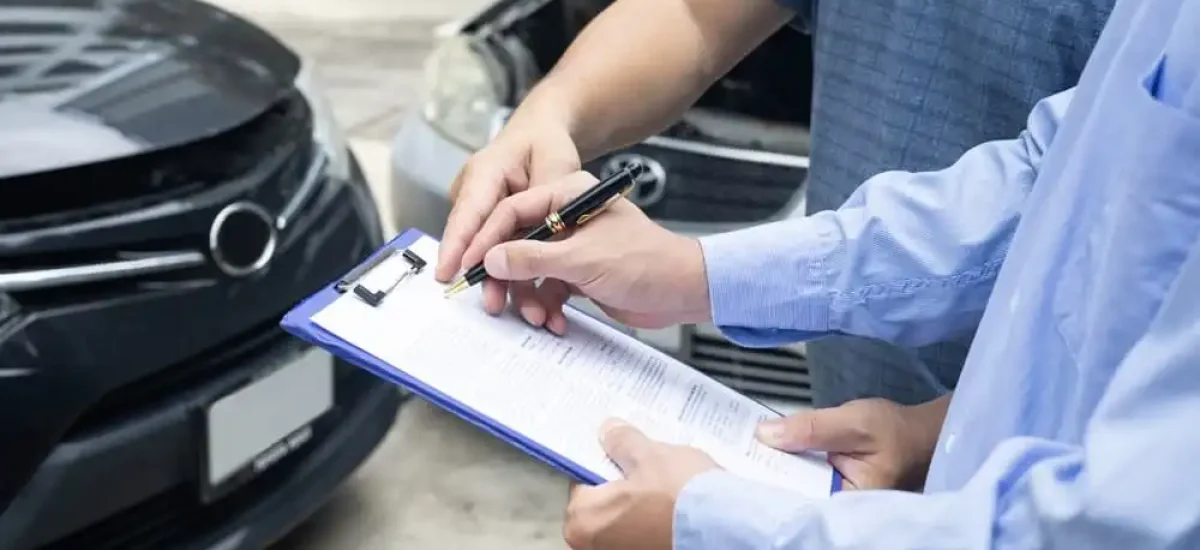If you’ve purchased a new or used vehicle that has serious defects, you may be entitled to compensation under the Lemon Law. This law is designed to protect consumers from defective vehicles that cannot be repaired after a reasonable number of attempts, giving you the right to request a refund or replacement.
While the Lemon Law process may seem complicated, understanding the key steps involved can help you navigate it successfully and secure the compensation you deserve. In this blog, we’ll walk you through the Lemon Law process, from identifying a lemon vehicle to working with an attorney to get your case resolved.
1. Determine If Your Vehicle Qualifies for Lemon Law
The first step in the Lemon Law process is determining whether your vehicle qualifies. Each state has its own version of the Lemon Law, but there are common criteria to look for. Generally, your car must meet the following conditions:
-
Serious defect: The vehicle must have a significant defect or condition that affects its safety, value, or use. This can include engine issues, transmission problems, electrical malfunctions, and more.
-
Unsuccessful repairs: The defect must not have been fixed after a reasonable number of repair attempts. Typically, this means the vehicle has been in the shop for the same issue multiple times or has been out of service for a significant period.
-
Timeframe: There is often a time limit within which you must report the problem and file a claim under Lemon Law. This period typically ranges from 18 months to 2 years, depending on your state.
Why this matters:
-
If your vehicle meets these criteria, it is more likely to be classified as a lemon, and you may be eligible for compensation under Lemon Law.
2. Document the Defects and Repairs
Once you’ve established that your vehicle might qualify as a lemon, it’s essential to document every issue, repair, and communication related to the defect. Keeping detailed records will help support your case and prove that the vehicle has not been properly fixed.
Steps for documenting your case:
-
Keep repair receipts: Retain all repair invoices and receipts showing when your car was in the shop, what issues were addressed, and the repairs performed.
-
Note failed attempts: Record how many times the same defect was repaired and whether the issue was fixed or if it reoccurred.
-
Record communications: Keep track of all communications with the dealership, repair shop, or manufacturer, including emails, letters, and phone calls.
-
Take photos: If possible, take photos or videos of the vehicle showing the defects. This visual evidence can be very helpful in proving your case.
Why this matters:
-
Proper documentation strengthens your claim by providing solid evidence that your vehicle is defective and that the manufacturer or dealer has failed to fix the problem.
3. Contact the Manufacturer or Dealer
Before filing a Lemon Law claim, you must give the manufacturer or dealer a reasonable chance to repair the defect. In many cases, this means you need to send a formal notice to the manufacturer or dealer informing them of the problem and requesting that it be fixed.
In some states, you may be required to send a written notice to the manufacturer or dealer, outlining the defect and requesting a resolution. This gives them the opportunity to resolve the issue before you move forward with a legal claim. Keep a copy of the notice and proof that it was sent (e.g., certified mail receipt).
Why this matters:
-
Giving the manufacturer or dealer a chance to fix the issue is an essential part of the Lemon Law process. Failing to do so could jeopardize your claim.
-
This step also helps establish that you made a reasonable effort to resolve the issue before seeking a legal remedy.
4. Work with an Experienced Lemon Law Attorney
Once you’ve determined that your vehicle qualifies for a Lemon Law claim and you’ve given the manufacturer or dealer a reasonable chance to fix the issue, it’s time to consult with an experienced Lemon Law attorney. An attorney who specializes in Lemon Law can guide you through the process, ensuring that you meet all legal requirements and maximize your chances of a successful outcome.
What a Lemon Law attorney can do for you:
-
Evaluate your case: Your lawyer will review the details of your case, including your vehicle’s defects, repair history, and any communication with the manufacturer or dealer, to determine whether you have a strong claim.
-
Handle negotiations: An attorney can negotiate directly with the manufacturer, dealership, or their insurance company to secure a fair settlement or a replacement vehicle.
-
Represent you in court: If a settlement cannot be reached, your attorney can take your case to court and represent you during the trial.
Why this matters:
-
An attorney understands the complexities of Lemon Law and can navigate the legal system on your behalf, increasing your chances of a favorable outcome.
-
With legal representation, you have someone fighting for your rights and ensuring you are properly compensated for your defective vehicle.
5. Seek a Refund or Replacement Vehicle
Once your Lemon Law claim is successfully filed, you are typically entitled to one of the following outcomes:
-
Vehicle replacement: The manufacturer may be required to replace your lemon vehicle with a new one of similar make and model.
-
Refund: If a replacement is not possible or desirable, the manufacturer may be required to refund the full purchase price or lease amount, minus any reasonable deductions for usage or mileage.
The exact compensation you’re entitled to will depend on the severity of the defect, the number of repair attempts, and your state’s Lemon Law guidelines.
Why this matters:
-
The goal of a Lemon Law claim is to provide you with a resolution that either fixes the problem by replacing your car or compensates you for the financial loss caused by the defective vehicle.
6. Stay Within the Statute of Limitations
Each state has a statute of limitations for Lemon Law claims, which is the timeframe within which you must file your claim. The statute of limitations typically ranges from 18 months to 4 years, depending on the state. It’s important to act quickly to ensure you don’t miss the deadline.
Why this matters:
-
If you miss the deadline for filing a claim, you may lose your right to seek a refund or replacement under Lemon Law.
-
Consulting with a lawyer early in the process ensures that you stay within the legal time frame and don’t lose your opportunity for compensation.
Conclusion
Navigating the Lemon Law process can seem overwhelming, but by following the right steps and working with an experienced attorney, you can protect your rights and get the compensation you deserve. Whether you’re seeking a refund or a replacement vehicle, understanding the process—from documenting defects to filing a claim—will help you achieve a successful resolution.
If you believe your vehicle qualifies for Lemon Law protection, don’t hesitate to reach out to a skilled Lemon Law attorney who can guide you through each step of the process. With the right legal support, you can put the frustrations of dealing with a defective vehicle behind you and move forward with the justice you deserve.



